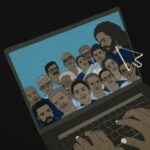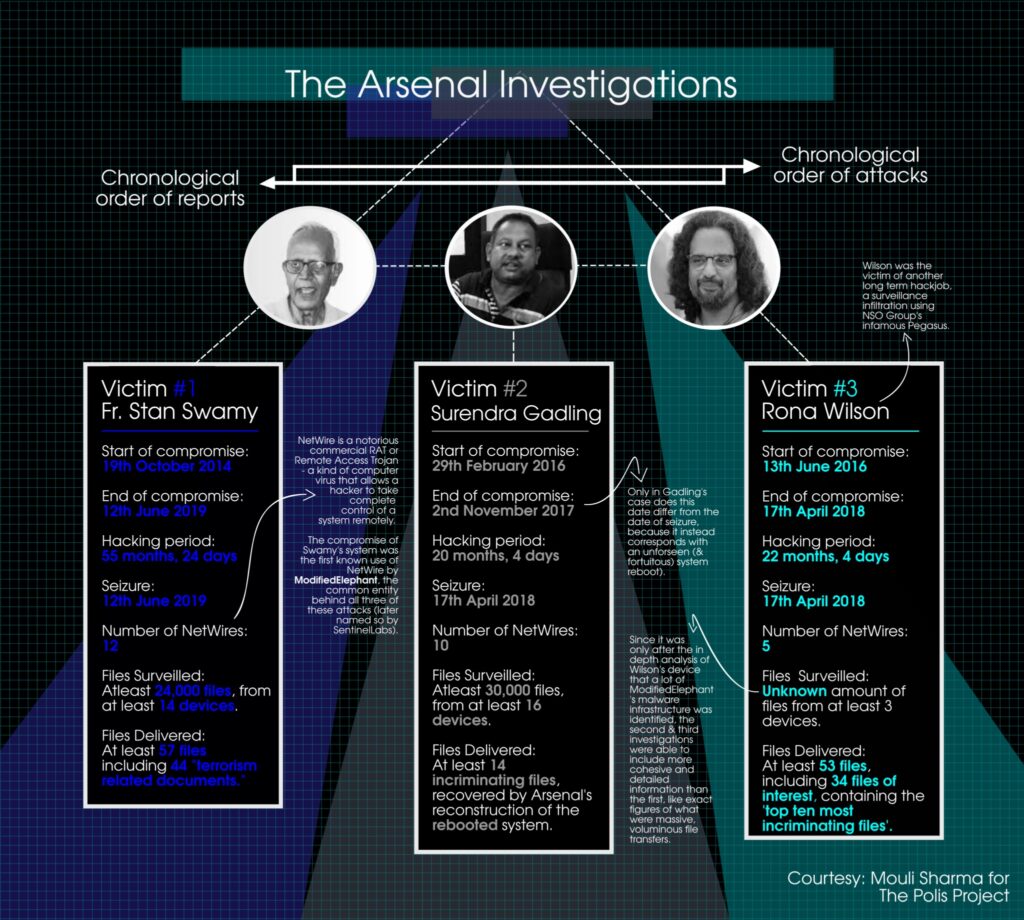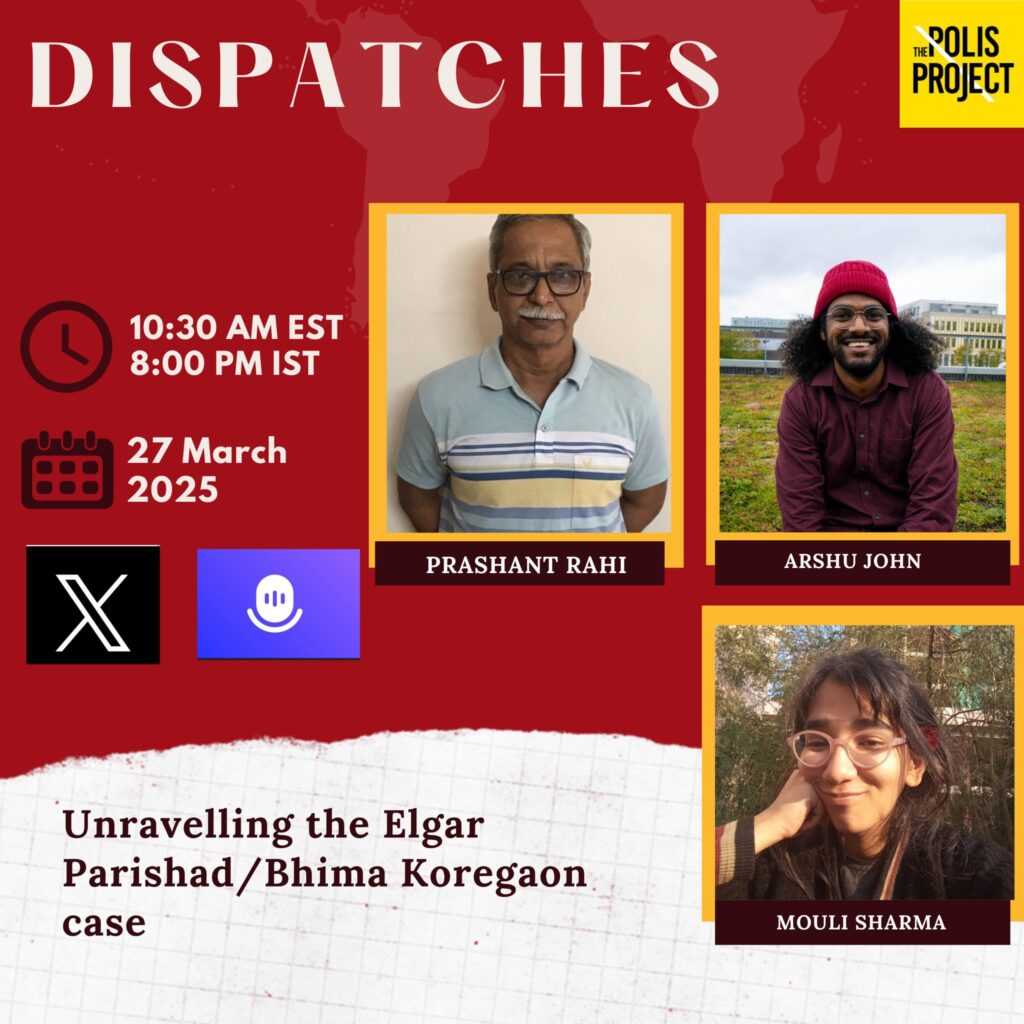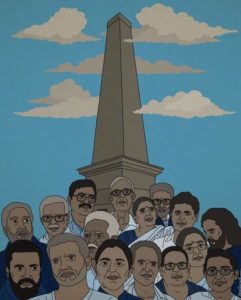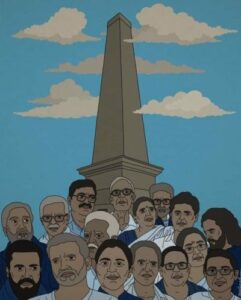
New Book on Bhima Koregaon Case Tells Uncomfortable Truths, But Brings Hope
31/04/2024
The Quint / by Mekhala Saran
Alpa Shah’s book, ‘The Incarcerations’, is alive with stories of fearlessness, but also of the cost it extracts.
“Well, I am off to NIA custody and do not know when I shall be able to talk to you again. However, I earnestly hope that you will speak out before your turn comes.”
– Anand Teltumbde, on the eve of his incarceration in April 2020
Alpa Shah’s book on the Bhima Koregaon incarcerations is not an easy read. When I first decided to review the book – before laying my hands on it – I thought it would not take me longer than a week.
Read more
A new book recounts how 16 activists were imprisoned as terrorists, without trial
27/03/2024
Scroll.in / by Alpa Shah
An excerpt from ‘The Incarcerations: Bhima Koregaon and the Search for Democracy in India’
Amnesty International India and Oxfam India released a joint response the day Sudha Bharadwaj, Gautam Navlakha, Arun Ferreira, Vernon Gonsalves and Varavara Rao were arrested. “The nationwide crackdown on activists, advocates and human rights defenders is disturbing and threatens core human rights values.”
Read more
 by Shireen Azam / @shireenazam (March 26:)
by Shireen Azam / @shireenazam (March 26:)
A full full house at @LSEpublicevents for the book release of (Bhima Koregaon) Incarcerations by @alpashah001
Video| Book launch/discussion: The Incarcerations: BK-16 and the search for democracy in India
26/03/2024
Hosted by the International Inequalities Institute, LSE Human Rights, Department of Anthropology and Atlantic Fellows for Social and Economic Equity
IN-PERSON AND ONLINE PUBLIC EVENT
Speakers:
Professor Alpa Shah.
Discussants: Professor Christophe Jaffrelot, Professor Tarun Khaitan and Priyanka Kotamraju
Chair: Professor Deborah James
Join us to launch and discuss Alpa Shah’s new book, The Incarcerations: BK-16 and the search for democracy in India.
As general elections fast approach in the world’s largest democracy, this event asks what democracy today must urgently ensure for our common future. In her latest book, Alpa Shah pulls back the curtain on Indian democracy to tell the remarkable and chilling story of the Bhima Koregaon case, in which 16 human rights defenders (the BK-16) – professors, lawyers, artists – have been imprisoned, without credible evidence and without trial, as Maoist terrorists.
Read more
Watch on LSE’s YouTube channel.
Interview | Alpa Shah: India is not a safe place any more
23/03/2024
The News Statesman / by Gavin Jacobson
Narendra Modi’s Hindu supremacism is capturing major state institutions while repressing minority groups and political activists.
… Shah exposes how the state engaged in a prolonged act of cyberwar against the so-called “BK-16”, hacking their emails and implanting incriminating evidence on their computers in order to prosecute them. It is the best book I’ve read about the full-scale assault on democracy in India, and with the general elections scheduled to conclude in June, it’s essential reading for an understanding of what is happening to the country right now.
On 18 March I met Shah at her office at the London School of Economics.
Gavin Jacobson: When did you decide to write a book about the BK-16?
Read more
Hackers-for-Hire, Govt’s Media Control: Seven Takeaways From Studying the Arrests of the BK-16
15/03/2024
The Wire / by Alpa Shah
“…the evidence used to incarcerate the BK-16 was likely to have been implanted remotely through a hacker-for-hire mercenary gang infrastructure that has clients all over the world, but whose epicentre is in India.”
Excerpted with permission from Alpa Shah’s The Incarcerations: Bhima Koregaon and the Search for Democracy in India, HarperCollins 2024.
Read more
Hacker-for-hire gang with links to Pune police planted emails on the computers of Bhima Koregaon accused: new book
14/03/2024
The Hindu / by Vijaita Singh
The mercenary hacker gang, headquartered in India, remotely implanted evidence, according to LSE professor’s book; cites cybersecurity researchers to claim gang’s connection to a Pune police officer
The alleged evidence used to incarcerate 16 people in the Bhima Koregaon case was “likely to have been implanted remotely through a hacker-for-hire mercenary gang infrastructure that has clients all over the world, but whose epicentre is in India,” according to claims made in a new book.
Read more
The arrests putting Narendra Modi’s ‘fascist’ India on trial
14/03/2024
The Telegraph / by Andrew Whitehead
Stan Swamy, a Jesuit priest, died in custody in India in July 2021. He was 84. He had spent nine months in detention and had been repeatedly denied bail; yet he had not been convicted of any offence.
… Alpa Shah, an anthropology professor at the London School of Economics, argues in The Incarcerations that the arrest of Swamy and 15 others – lawyers, academics, poets, activists – in what has become known as the “BK case” reveals India’s authoritarian creep.
Read more
Also read:
▪ Why Courts Are Ignoring Concerns Of Planted Evidence In The Bhima-Koregaon Prosecution (article14 / Jan 2023)
▪ Police Linked to Hacking Campaign to Frame Indian Activists (Wired.com / June 2022)
